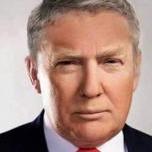
|
-
Posts
866 -
Joined
-
Last visited
About Islandgirl7

- Birthday August 22
Profile Information
-
Gender
Female
-
Location
Treasure Island
Recent Profile Visitors
17,355 profile views
Islandgirl7's Achievements
Newbie (1/14)
45
Reputation
-
ChuckFinley started following Islandgirl7
-
Yawn..... you two are constantly at it. It feels like I am back in grade school on the play ground watching 2 kids taunting each other...why? Dinarbeliever, why waste your time doing the same debates with Boomer. Neither one of you will convince the other they are wrong. Only time will tell. Boomer why get on a site that is planning and prepairing for a revalue? Go start your own site called ( the Dinar revalue scam .com ) and preach to those that feel like you do, because for the life of me I can't understand why you waste your time on this site. GO RV!!!! Xoxoxox
-
Biker Hero Earlier this year, a group of bikers were riding out when they saw a girl about to jump off the Humber Bridge . So they stopped. George, their leader, a big burly man of 53, gets off his Harley, walks through a group of gawkers, past the Policeman who was trying to talk her down off the railing, and says, "Hey Baby.....whatcha doin' up there on that railin'?" She says tearfully, "I'm going to commit suicide!!" While he didn't want to appear "sensitive," George also didn't want to miss this "be-a-legend" opportunity either so he asked ..."Well, before you jump, Honey-Babe...why don't you give ole George here your best last kiss?" So, with no hesitation at all, she leaned back over the railing and did just that ... and it was a long, deep, lingering kiss followed immediately by another even better one. After they breathlessly finished, George gets a big thumbs-up approval from his biker-buddies, the onlookers, and even the Policeman, and then says, "Wow! That was the best kiss I have ever had, Honey! That's a real talent you're wasting, Sugar Shorts. You could be famous if you rode with me. Why are you committing suicide?" "My parents don't like me dressing up like a girl." It's still unclear whether she jumped or was pushed.
-
Been gone for a while....BUT...Reuters is WRONG....Watch for yourself... http://webtv.un.org/watch/daily-press-briefing-sg-travel-security-council-iraq-monusco-somalia-vienna-unicef/2513358615001 http://webtv.un.org/watch/h.e.-mr.-hoshyar-zebari-iraq-security-council-media-stakeout-27-june-2013/2513353104001/ GO RVVVV!!!!
-
Hello Adam, Do you have a comment in regards to this article about Warka?
-
I would like to share an experience with you, about drinking and driving. As you well know, some of us have been known to have had brushes with the authorities on our way home from the odd social session over the years. A couple of nights ago, I was out for a few drinks with some friends at the Marriott Hotel and had a few too many beers and some rather nice red wine. Knowing full well I may have been slightly over the limit, I did something I've never done before: I took a bus home. Sure enough I passed a police road block but as it was a bus, they waved it past. I arrived home safely without incident, which was a real surprise, as I have never driven a bus before and am not sure where I got it.
- 1 reply
-
- 7
-

-

-

WE NEED TO START A NATURAL CURE PAGE
Islandgirl7 replied to Heavyduty053's topic in Natural Cures and Health Talk
Bee/Wasp Stings - Cut an onion open, press and hold on sting, don't know why it works but you won't have any swelling and minimal itching. I was stung under my eye and it worked wonderful. Pink Eye - Peel and cut an apple, mash into a pulp, tip head back, press mash onto closed lid letting juice seep in, repeat at least 3 times daily and you should be clear in 3-4 days. Ear Ache/Swimmers Ear - 1 shot of vodka...2-3 drops in the ear and shoot the rest. This worked great on my grandson..he got the drops, I got the shot and we were both happy. :lol: Really it did work!! -
As Iraq takes an increasingly significant role in the region, the nation’s neighbours are taking note. After over 20 years without one, Saudi Arabia has made the first move, appointing an ambassador to Baghdad. But the Iraqis want more. Iraq looks to be forging its own, new regional identity, after the withdrawal of US troops late last year. And its neighbours also seem to be seeing the nation with new eyes. And one of the first to make friendly overtures is Iraq’s formerly implacable antagonist, Saudi Arabia. After over two decades of less than friendly relations, the Saudis have appointed a non-resident ambassador to Baghdad, signalling a return to more normal diplomatic relations for the first time since former Iraqi leader Saddam Hussein launched an invasion into Kuwait in 1990. The Saudi ambassador is career diplomat, Fahd al-Zaid. Part of the reason for Iraq’s growing importance in the region is because of its unique links with Iran and the US, two countries that have a tense relationship. Additionally, at a time of transformation in the region, Iraq is seen as something of pioneer, having experienced the growing pains that come with the political change from dictatorship to fledgling democracy. Some observers believe the move may be motivated by fear of other nations with growing influence in Iraq – in particular, they say, it’s about the Iranian influence. But the Saudis may also be worrying about other nations. “Saudi Arabia fears that its relations with Iraq might worsen while Iraq’s relations with Qatar might improve,” local political analyst, Usama Murtada, suggested to NIQASH. “This is what has made Saudi Arabia take this proactive step. It has happened within the context of rivalry that exists between those two countries [Qatar and Saudi Arabia].” The Iraqi government was quick to welcome the move. Although it did add that they would prefer it if the Saudi ambassador actually worked in Iraq, rather than being based in Jordan. Saudi Arabia had said that their ambassador to Iraq would be based in Jordan because of the precarious security situation in Baghdad. “Saudi Arabia has taken a very positive step but Iraq is keen to have a resident ambassador because of the many ongoing and historical issues between the two countries that need to be resolved,” Ali al-Musawi, media adviser to the Prime Minister, told NIQASH. “We should have had relations with Saudi Arabia for some time now really. We’ve had an ambassador in Saudi Arabia for several years [since 2009] and the Saudis should have appointed someone in return. We have many diplomatic and economic issues to discuss with the Saudis.” In a statement last week, Iraq’s Ministry of the Interior reported that a delegation of high-ranking Iraqi security officials had visited Saudi Arabia and held meetings with their counterparts there. They had discussed ways of improving ties, anti-terrorism efforts, detainees that both countries had from the other country and other issues of common interest. However it was noted that while the Iraqi delegation was in Saudi Arabia, officials there gave the go-ahead for the execution of two Iraqi detainees held in Saudi Arabian prisons. Some observers interpreted this as a signal that the Saudis were not all that serious about the issue of detainees, one of the most controversial topics between the two countries. According to international news reports, there are 113 Saudi prisoners in Iraq, including six on death row. In Saudi Arabia, there are 138 Iraqi prisoners in Saudi Arabia, including 11 on death row. According to statements made by Iraq’s ambassador to Saudi Arabia, Ghanem al-Jumaili, the two nations would sign an agreement on the exchange of prisoners on March 12, when Iraq’s Minister of Justice, Hassan al-Shammari, came to visit. Other issues to be discussed as part of the new diplomatic thaw between Iraq and Saudi Arabia include security issues. “Both countries are facing threats from [sunni Muslim extremist group] al-Qaeda,” al-Musawi explained. “And it is necessary to cooperate and to exchange information.” Another of the issues to be discussed will be the oil industry. “Co-ordination between the two OPEC member countries that have the largest oil reserves is a very important issue,” al-Musawi explained. Although Iraq still faces problems with oil production, it is in line to become one of the biggest oil exporters in the region and therefore, a major competitor with Saudi Arabia in this area. “Saudi Arabia has started to feel that a new Iraq is emerging, and the new Iraq is competent in terms of oil production,” political analyst, Abdul-Khaliq Jumaa, told NIQASH. “Having a fellow oil-producer as a friend is better than having it as an enemy.” Another business-related issue to be negotiated concerns the Arar border crossing in northern Saudi Arabia. The border crossing has mostly been closed ever since the 1990 invasion of Kuwait. It is opened annually to allow pilgrims to cross the border. But now Iraq and Saudi Arabia are talking about opening the crossing properly. The amount of business the two trading partners are doing has been increasing, Murtada noted. “Geography has an impact,” he observed. “Two neighbouring countries cannot remain so separate.” So while the future of the new Iraqi-Saudi friendship remains unclear – there will doubtless be many more hurdles – it seems that a thaw in the formerly icy relationship has begun. http://www.niqash.org/articles/?id=3001
-
Iraq could be one of the richest countries in the world. Yet over three quarters of Iraqis do not have bank accounts. So where do they keep that wealth? And can the Iraqi banking system be dragged into the 21st century? The banking sector in Iraq reflects the economic mess that the country is in. Basic modern banking practices – like electronic funds transfers for payroll or other banking needs - are almost non-existent and credit facilities are hard to come by. Automatic teller machines remain a novelty while mortgages and loans are a rarity. Iraq has only a few banks with the ability to transfer funds electronically and the number of branches able to undertake this sits at around 240. Transferring funds directly to Iraqi banks remains a patchy process and it is more often done through other banks in the region, such as more reliable sister bank in Jordan or the United Arab Emirates. Latest research estimates that around 80 percent of Iraqis do not have a bank account or even access to one. The public's trust in the Iraqi banking sector remains low. Which is why most banks in Iraq simply act as a glorified safety deposit box. Meanwhile Iraq is on track to become one of the wealthiest countries in the world, with the fourth largest oil reserves in the world and the potential to be one of the globe's leading oil exporters, eventually matching, or even surpassing, Saudi Arabia, currently one of the largest oil exporters in the world. But despite incoming revenue and the potential for growth, economic progress remains slow - and this is partly due to dysfunctional banking sector. There is talk of sector reform and new electronic banking systems - yet this vital sector is still underdeveloped. The financial sector in Iraq is still in its infancy and a lack of understanding of it, by the political elite and economically illiterate policy makers, has not helped. Politicians in Iraq keep failing to grasp the importance of this vital part of the economy, a part that could transform the country's dated economic structure and bring it out of the cash economy and further toward the modern world of finance. Iraq’s banks were nationalised in the mid-1960s, in line with the government’s nationalist and socialist policies of the time. Before then there had been a privatised banking system. In the early 1990s, former Iraqi leader Saddam Hussein’s regime tried to kick start private banking again but two decades later not much progress has been made. According to the website of Iraq’s National Investment Commission, the minimum capital required to set up a bank in Iraq is IQD100 billion (around US$85 million). Currently there are 49 banks with licenses to operate – 42 of these are private banks, including 11 Islamic banks and foreign banks. The rest of the licensees are state owned banks like the giant Rasheed and Rafidain banks, which account for the vast majority of banking business in Iraq. There has also been a surge in the numbers of financial and investment firms, with around 40 such licences issued to date. Interestingly, despite the capital requirement of IQD 100 billion though, some of the private banks have yet to comply with that regulation. Iraq currently has around one local banking branch for every 60,000 people. Compared to other countries in the region, this is very low: for example, the average in Saudi Arabia is around one branch for every 3,500 citizens. Which means that despite the growth needed in the banking sector and the emergence of many small, boutique-style banks and investment houses, the population still has little, or no, access to banking facilities. Most Iraqis rely on relatives and friends to borrow money. But obviously this can cause social problems. There are also small organizations that provide loans for start up businesses but the amount that these schemes can lend is usually minimal. There is also the issue of trust in the banking system. In a recent banking scandal in the semi-autonomous state of Iraqi Kurdistan, local businessmen, most of them based in the city of Sulaymaniyah, lost around US$500 million. This was due to the drop in value of Iranian currency, after US and European sanctions were imposed, which led to the failure of a small but active Iranian “bank”. The so-called bank had been operating as a middleman transferring funds to and from Iraqi Kurdistan, Dubai and Iran. Incidents like this do not reinforce public trust in the banking sector; most Iraqis remain very sceptical about local banks due to a lack of rigorous regulation. And the weak banking culture simply encourages the current cash economy. All of which has stalled foreign and local investment needed to rebuild the country. It has also encouraged local businesses to be apathetic about taxation or social responsibility. Another major issue plaguing Iraq’s banking sector, and for that matter, the private sector too, is the prevailing ideology of top-down politics and big government. Many Iraqi politicians, including Prime Minister Nouri al-Maliki’s ruling party, are suspicious of the private sector; they prefer to stick to what they know best, which is having the state control almost all economic activities - including the banks. Looking around the world, it is clear that a strong banking sector is essential to a successful economy. Apart from helping the private sector and small business grow by providing financing, the government can also measure and quantify economic activity. Once the banking sector flourishes, and transactions are recorded and regulated, money laundering and corruption is automatically reduced. Meanwhile on the positive side, the Iraqi stock exchange has been growing faster than any other index in the region, the main stocks being traded involve banking and projections for the stock market’s growth are very optimistic. This is a big vote of confidence in the future of the banking sector. Additionally there have been talks of banking sector reform, which has included the introduction of electronic banking. While only 20 percent of Iraqis have a bank account, around 80 percent have a mobile phone and phone banking was a hot topic at the “Integrating the Banking and Financial Services Sector in Iraq” conference held by USAID and the Central Bank of Iraq last November. However modernising Iraq’s banking sector will not be achieved solely by introducing new technology. Modernisation needs to start by opening up the markets and bringing in competition. As long as the public banks remain the dominant players in the market, there is not much chance of improving the current situation. Privatising the major banks would be a quick way of revolutionising the Iraqi banking sector. Having said that, this move seems unlikely given the current government record of maintaining control. At least some of the problems Iraq has could be healed by a strong economy and more prosperous nation. And the long road toward this begins with better financial structures and a stronger banking sector, complete with all the regulations required. A free market and the equal right of all consumers to participate in it, has helped to bring communities together. The failure of Iraqi politicians to grasp the urgent need to revamp the banking sector, and to understand the basic economics of growth, has had a significant impact on the pace of development in the country. The failure to carry out needed reforms – and not just those in the banking sector – is one of the major reasons that, as was reported recently, around 23 percent of the population in resource-rich Iraq are living below the poverty line. http://www.niqash.org/articles/?id=3002
- 1 reply
-
- 1
-

-
Just a few more....slow day here!!! • If you love someone, set them free, then get the heck out of there because they will call the police and you’ll get charged with kidnapping. • to the world you may be one person…but to one person you may be the world!!!!!!! • A friend will come bail you out of jail but, your best friend will be sitting next to you saying… “Wow that was fun!” • Life is tough, get a helmet • Life isn’t about how many breathes you take but about the moments that take your breathe away • There is a light at the end of every tunnel….just pray it’s not a train!. • THINK its not illegal yet • silence is golden. duct tape is silver. • If you’ve never met the devil in the road of life, its because you’re both heading in the same direction. • You have no one to blame but yourself…Unless some other guy is standing next to you then you can blame him.
-
• Some say the glass is half full, some say the glass is half empty. I say “Are you gonna drink that?”
-
Some mornings, it's just not worth chewing through the leather straps
-
The great thing about the disrtibution of the 25% to the people is, wealthy people don't blow themselves up. this will aid to the stability of the country, and get the citizens to have to have bank accounts, because thats how the money will get to them, form the government. This was a big stepping stone today along with the budget passing.
-

Just Posted on Fox News' Website
Islandgirl7 replied to Charlie339's topic in Iraq & Dinar Related News
First of all thank you so much to our government and banking system who strive to protect me from myself!! And the state of UTAH no less and no offense... And thank you Wells Fargo for watching my back... this article makes me want to run out and buy another million... Why would they even waste their time writing about a "worthless" currency unless they didn't want to pay out when the time comes? I'm sure our government and the other governments around the world not to mention members of the ISX (ie..coca-cola, pepsi, mcdonalds) see no potential....SMOKE...SMOKE...SMOKE!!! -
How did it come to you? was it a page torn from the magazine, copied and forwarded? Or was it simply an email?





